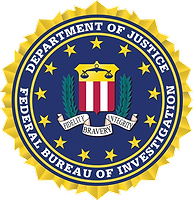The FBI is adding resources, building new tools, increasing hiring and expanding collaboration efforts with local groups as part of its Next Generation Cyber Initiative in an effort to overhaul the Bureau’s Cyber Division, according to an article from InformationWeek.
Within the last year alone, the FBI has busted dozens involved in the online trafficking of credit card and bank account data, arrested key members of Anonymous and LulzSec (hacktivist groups), broken up a sophisticated gang of online bank fraudsters, taken down a small-town mayor for hacking a website calling for his recall and worked closely with international officials to disrupt a botnet that had stolen $14 million, InformationWeek reports.
However, the FBI is striving to improve, especially in its ability to identify the hacker behind a cyber attack. The nature of the Internet and the hackers’ ability to spoof IP addresses and rely on proxies has long stumped law enforcement, the article says.
However, over the past year, the agency has launched an effort to “uncover and investigate Web-based intrusion attacks and develop a cadre of specially trained computer scientists able to extract hackers’ digital signatures from mountains of malicious code,” the FBI says in a press release. The Bureau has increasingly hired computer scientists to work alongside agents for cyber investigations, InformationWeek reports.
The FBI is attempting to find out who is conducting each cyber attack and uncover his or her motive, and in order to do that, “We’ve got to do all the necessary analysis to determine who is at the other end of the keyboard perpetrating these actions,” says FBI assistant director of criminal, cyber, response and services Richard McFeely in a statement.
That effort requires new talent and better tools, as well as ongoing collaboration with organizations that get hacked and other government agencies. As such, the FBI says that its agents are working to build relationships with critical infrastructure companies in finance and transportation, InformationWeek reports. The agency is also sharing extra information with the Department of Defense, Department of Homeland Security and National Security Agency as part of the National Cyber Investigative Joint Task Force.






